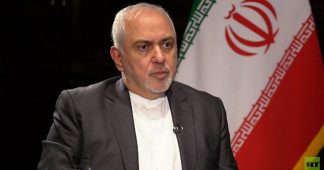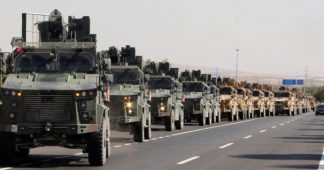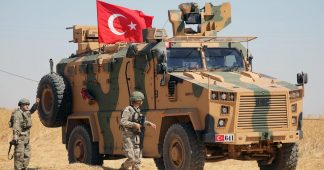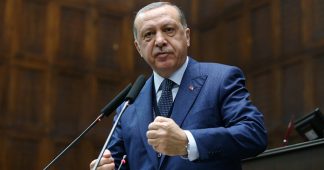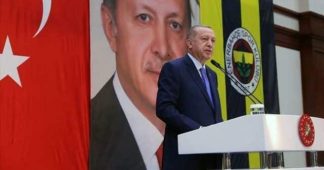Devesh Kumar
Recep Tayyip Erdogan, threatened to launch a new military campaign in Syria to secure the country’s southern border on Monday. Following a Cabinet meeting, Erdogan asserted that the operation’s main objective would be to reboot Turkish efforts to establish a 30-kilometer (20-mile) safe zone along its border with Syria.
“We will soon take new steps regarding the incomplete portions of the project we started on the 30-km deep safe zone we established along our southern border,” Erdogan said. Erdogan did not provide additional details, but stated that the operation would start soon. Once Turkey’s military, intelligence, and security forces had finished their preparations the operation may start.
Turkish forces have launched three major incursions into northern Syria. It seized control of areas along the border. It was in an attempt to ensure its border from threats posed by the Islamic State group and the People’s Protection Units, or YPG.
Turkey perceives the group as an extension of the banned Kurdistan Workers’ Party, or PKK. Turkey, the United States, and the European Union have designated PKK as a terrorist organization. Since 1984, the PKK has waged an insurgency against Turkey. Tens of thousands of people have died as a result of the conflict.
Turkey incursions in 2019:
In 2019, Turkey launched a bloody military campaign against the Peoples’ Protection Units (YPG). It is a Syrian militia backed by military members of the US-led international coalition fighting the Islamic State.
The Syrian YPG has connections to the PKK, a leftist militant group that has been fighting an insurgency against the Turkish state for nearly four decades, but it denies posing a threat to Turkey.
Ankara’s 2019 operation, dubbed Peace Spring, was the third of its kind in northern Syria. It forced 300,000 people to flee their homes after the Donald Trump White House ordered US forces to evacuate the area.
That operation slowed after US diplomats led by former Vice President Mike Pence pressed Ankara for a cease-fire. Donald Trump threatened to “destroy and obliterate” Turkey’s economy, but cease-fire violations have persisted.
Human rights organizations have criticized Turkey’s previous military operations in northern Syria. The most recent major incursion displaced thousands of civilians. The UN called on Turkey in 2020 to investigate “possible war crimes” committed by armed groups in areas under its control.
Opposed Sweden and Finland’s bid to join NATO:
Erdogan’s comments come at a time when Turkey is taking a stand against Sweden and Finland’s NATO membership. It is citing the two countries’ alleged support for the PKK and other terrorist groups, as well as their decision to impose restrictions on military sales to Turkey. It was following Ankara’s incursion into Syria in 2019.
Turkey’s objection stems from Turkish grievances with Stockholm’s and to a lesser extent its perceived support for the banned Kurdistan Workers Party, the leftist extremist group DHKP-C, and followers of the US-based Muslim cleric Fethullah Gulen. Ankara accuses them of being behind a failed military coup attempt in 2016.
Many Kurdish and other exiles have sought refuge in Sweden in recent decades as have members of Gulen’s movement. Sweden and Finland, according to Turkey’s state-run media, have refused to extradite 33 people wanted by Turkey.
Erdogan also claims that his country does not want to repeat Ankara’s “mistake” of agreeing to readmit Greece into NATO’s military structure in 1980. He claimed that the action enabled Greece to “take an attitude against Turkey” with NATO’s support.
Turkey’s veto threat is likely to erode its own standing in Washington and across NATO. It will reinforce the image of a country that is obstructing the alliance’s expansion for personal gain. Turkey also risks undermining the goodwill it gained by supplying Ukraine with the Bayraktar TB2 armed drones. It was an effective weapon against Russian forces.
We remind our readers that publication of articles on our site does not mean that we agree with what is written. Our policy is to publish anything which we consider of interest, so as to assist our readers in forming their opinions. Sometimes we even publish articles with which we totally disagree, since we believe it is important for our readers to be informed on as wide a spectrum of views as possible.
